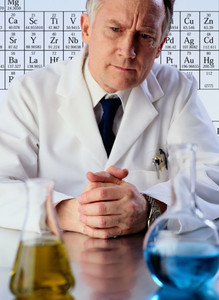A study of pharmacists, carried out jointly by the Academy of Managed Care Pharmacy (AMCP) and the Hematology/Oncology Pharmacy Association (HOPA), found that pharmacists had a preference for distinguishable names. However, the study also found that using the same names for interchangeable biologicals would make pharmacists more likely to dispense biosimilars [1].
Naming affects pharmacists’ perceptions and dispensing of biosimilars
Biosimilars/Research
|
Posted 06/01/2017
 0
Post your comment
0
Post your comment

The US Food and Drug Administration (FDA) issued draft guidance on the non-proprietary naming of biological products in August 2015 [2]. However, the guidance continues to be in flux and does not address naming for products given an interchangeable designation.
This study by the AMCP and HOPA aimed to determine pharmacists’ perceptions of biosimilar naming conventions and the impact it might have on pharmacists’ confidence to dispense biosimilars.
The cross-sectional survey of 781 pharmacists was conducted using an online survey software program. When asked directly, pharmacists reported a preference for a non-proprietary proper name with a designated suffix for biosimilars. However, use of such a naming strategy was associated with a decrease in confidence of substituting a biosimilar for the originator biological.
The preference for unique names for biologicals correlates with a survey carried out by the Alliance for Safe Biologic Medicines (ASBM). That survey found that the majority of responders (68%) thought that FDA should require a distinct non-proprietary scientific name for every biological product – originator or biosimilar. While a total of 77% of respondents thought that a manufacturer-specific suffix should be included in the name of each biological product [3]. The FDA draft guidance proposes a meaningless four-letter suffix [2].
The author therefore concluded that this might impact the ‘willingness of some pharmacists to dispense biosimilars’ or might result in pharmacists transferring this lower level of confidence in the product to the patient. ‘This effect will be minimized if interchangeable biologics share the same nonproprietary name as the reference biologics’. Additional research is needed to determine the overall impact this may have on actual use of biosimilars.
Conflict of interest
The author of the research paper [1] declared that there was no conflict of interest.
Editor’s comment
Readers interested to learn more about naming of biologicals are invited to visit www.gabi-journal.net to view the following manuscripts published in GaBI Journal:
US FDA proposals for naming of biologicals and labelling of biosimilars
If you are interested in contributing a research article in a similar area to GaBI Journal, please send us your submission here.
Related articles
FDA withdraws biosimilar suffix proposal
US rheumatologists in favour of distinct names for biosimilars
References
1. Tomaszewski D. Biosimilar naming conventions: pharmacist perceptions and impact on confidence in dispensing biologics. J Manag Care Spec Pharm. 2016;22(8):919-26.
2. GaBI Online - Generics and Biosimilars Initiative. FDA issues draft guidance on naming biosimilars [www.gabionline.net]. Mol, Belgium: Pro Pharma Communications International; [cited 2017 Jan 6]. Available from: www.gabionline.net/Guidelines/FDA-issues-draft-guidance-on-naming-biosimilars
3. Schneider P, Reilly MS. Naming and labelling of biologicals – the perspective of hospital and retail pharmacists. Generics and Biosimilars Initiative Journal (GaBI Journal). 2016;5(4):151-5. doi:10.5639/gabij.2016.0504.040
Permission granted to reproduce for personal and non-commercial use only. All other reproduction, copy or reprinting of all or part of any ‘Content’ found on this website is strictly prohibited without the prior consent of the publisher. Contact the publisher to obtain permission before redistributing.
Copyright – Unless otherwise stated all contents of this website are © 2017 Pro Pharma Communications International. All Rights Reserved.
News
FDA approves Poherdy (first interchangeable pertuzumab) and Armlupeg (pegfilgrastim) biosimilars
EMA recommends approval for insulin glargine biosimilar Ondibta and denosumab biosimilar Osqay
General
Samsung Bioepis wins Pyzchiva case; Regeneron patent rulings threaten foreign biosimilars
Chinese biosimilars go global: growth, partnerships, and challenges
What is the future for the US biosimilar interchangeability designation

Biosimilars/Research Posted 05/06/2025
Biosimilar clinical efficacy studies: are they still necessary?

Biosimilars/Research Posted 27/05/2025
The best selling biotechnology drugs of 2008: the next biosimilars targets








Post your comment